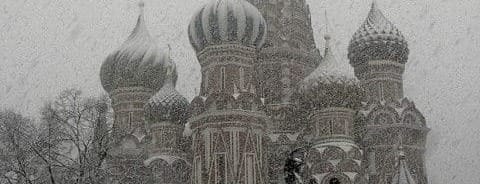My mind has devoured me whole, and I can no longer perform: Notes from Underground

“I tell you solemnly, that I have many times tried to become an insect. But I was not equal even to that. I swear, gentlemen, that to be too conscious is an illness- a real thorough-going illness.”
These lines encapsulate Dostoevsky's Notes from Underground (1864), revealing the inner turmoil of the central figure, the underground man. Throughout the novella, Dostoevsky explores the underground man's self-observations and the profound impact of his intense self-analysis on both his personal life and his role in Russian society. His self-consciousness and self-loathing undermine the intellectual image he tries to project. In a class reunion, he futilely attempts to prove his worth through wisdom, only to realise he is trapped in his own mental purgatory.
This novella is divided into two parts: "The Underground," where the underground man reflects on his later life and presents his self-observations; and "Apropos of the Falling Sleet," where he narrates interactions with wider society during his thirties and explores how his personality shapes his experiences. Central to the narrative includes the underground man's alienation from society, where sees himself as intellectually superior but is emotionally stunted, which leads to a sense of isolation; and his contradictions made against himself where he often contradicts himself, expressing disdain for society's expectations while simultaneously craving acceptance and recognition from others.

The underground man ‘consider myself an intelligent man’ who ‘unbounded vanity’ and has developed ‘to the high standard I set for myself’. This grand and lofty self-declaration exudes a tone of egoism, construing his character as the embodiment of self-awareness and intellect. This self-assured proclamation resonates with an air of egoism, portraying him as a figure of profound self-awareness and intellectual depth. By positioning himself in this elevated light, the underground man compellingly invites readers to adopt his self-perception. It is a common aspiration to set high benchmarks for personal achievement, and his bold declaration resonates admirably with many readers.
Despite crafting a striking persona as a "gentleman" through direct address, the underground man paradoxically harbours self-contempt and admits to profound self-consciousness bordering on intense self-hatred. Through poignant and emotive language, he confesses, "I often regarded myself with furious discontent, verging on loathing," and reflects on the acute awareness of the hopelessness of his situation. These nihilistic revelations subtly suggest the underground man's profound loneliness and estrangement from society, a consequence of his relentless self-analysis bordering on torment.
Moreover, his sentiment is underscored by the quote, "in despair there are the most intense enjoyments, especially when one is very acutely conscious of the hopelessness of one's position." This phrase deepens the sense of isolation the underground man imposes upon himself, reaching a point where he finds solace in his loneliness. It emphasises the tragic inevitability of his existence, marked by his own complex introspections and their damning impact on his life.
The first part of the novella impresses readers with the intricate and detailed self-observations spanning decades of his life. His vivid expressions of despair and loneliness starkly contrast with his claims of knowledge and intellect, presenting readers with a complex and contradictory character. However, these echoes of hypocrisy throughout the novella may resonate deeply with many readers, making it difficult to criticise or condemn his character.

In my next post, I will be delving into the second part of the novel, where we will see the underground man engaging with those parts of his society; most notably his peers. We will continue to examine the cynical nature of his mind and the perpetual impact of his thoughts on himself and those around him.
Wanna hear more about Notes From Underground & the enduring impact of a cynical mind? Subscribe to get updates! It's free, and I would love to hear your thoughts as well. 🤗 🤗